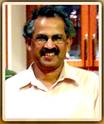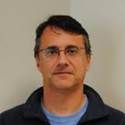Keynote Talks
Keynote 1 – ICPP: Then, Now and Future
by Dr. Chita Das
Abstract The International Conference on Parallel Processing has been a flagship venue for discussing the multifaceted research issues in parallel/distributed computing, and it has contributed to many evolutionary changes in this field over the last five decades. Its rich history spans from the fundamental design challenges at the hardware, software and application levels to the cutting-edge topics within the technology and application arena. This talk will cover a broad perspective of the conference that started in the early seventies and will include several salient features of the conference from its inception, how they have changed over time and a few projections for the future. This keynote address is dedicated to the memory of Prof. Tse-Yun Feng, who was the founder of this conference.
Bio
The International Conference on Parallel Processing has been a flagship venue for discussing the multifaceted research issues in parallel/distributed computing, and it has contributed to many evolutionary changes in this field over the last five decades. Its rich history spans from the fundamental design challenges at the hardware, software and application levels to the cutting-edge topics within the technology and application arena. This talk will cover a broad perspective of the conference that started in the early seventies and will include several salient features of the conference from its inception, how they have changed over time and a few projections for the future. This keynote address is dedicated to the memory of Prof. Tse-Yun Feng, who was the founder of this conference.
Bio
Chita Das is a Distinguished Professor of Computer Science and Engineering at the Pennsylvania State University. His main areas of interest include parallel and distributed computer architectures, multi-core architectures, mobile computing, performance evaluation, and fault-tolerant computing. In particular, he has worked extensively in the area of design and analysis of interconnection networks/on-chip interconnects. He has published more than 200 papers in the above areas, has served on many program committees, and editorial boards.
Keynote 2 – Internet of Things: Challenges and Opportunities
by George Pappas
Abstract There has been much discussion recently regarding the "Internet of Things" (IoT). The IoT is the phenomenon of physical things, embedded with sensors and actuators, coming online and interfacing with Internet-capable devices such as smartphones and cloud computing services. IoT technology has been embraced by Silicon Valley as well as many prominent companies; for example, General Electric has launched the Industrial Internet, Intel has an IoT group, and Cisco calls it "Fog Computing."
The National Science Foundation has prioritized this development under their
Cyber-Physical Systems (CPS) programs across the Computer &
Information Science & Engineering (CISE) Directorate.
Even large software companies like Google, Facebook and Amazon are
starting to invest heavily in hardware again.
There has been much discussion recently regarding the "Internet of Things" (IoT). The IoT is the phenomenon of physical things, embedded with sensors and actuators, coming online and interfacing with Internet-capable devices such as smartphones and cloud computing services. IoT technology has been embraced by Silicon Valley as well as many prominent companies; for example, General Electric has launched the Industrial Internet, Intel has an IoT group, and Cisco calls it "Fog Computing."
The National Science Foundation has prioritized this development under their
Cyber-Physical Systems (CPS) programs across the Computer &
Information Science & Engineering (CISE) Directorate.
Even large software companies like Google, Facebook and Amazon are
starting to invest heavily in hardware again.
During this lecture, I will present the broad IoT vision and then focus on some of the research challenges upon which my group is currently focusing. From a control theory perspective, some of these challenges include the development of a control theory that is communication- and energy-aware, controlling large numbers of devices or robots for active information gathering, designing attack-resilient controllers in the presence of cyber-attacks, as well as ensuring privacy of cloud-based estimation and control systems. Bio
George J. Pappas is the Joseph Moore Professor and Chair of the Department of Electrical and Systems Engineering in the School of Engineering and Applied Science at the University of Pennsylvania. He holds secondary appointments with the Departments of Computer and Information Science and Mechanical Engineering and Applied Mechanics. Pappas is a member of Penn’s General Robotics, Automation, Sensing and Perception (GRASP) Lab and the Penn Research in Embedded Computing and Integrated Systems Engineering (PRECISE) Center. Prior to becoming a Department Chair, he served as the Deputy Dean for Research of the School of Engineering and Applied Science. Pappas earned a Ph.D. in Electrical Engineering and Computer Sciences in 1998 from the University of California, Berkeley, for which he received the Eliahu Jury Award for Excellence in Systems Research for his doctoral research. His current research interests include control theory and, in particular, hybrid systems, embedded and cyber-physical systems, and hierarchical and distributed control systems, with applications to unmanned aerial vehicles, distributed robotics, green buildings, and biomolecular networks. Pappas has received numerous awards, including the National Science Foundation PECASE Award (2004), the George S. Axelby Outstanding Paper Award (2009), the Antonio Ruberti Young Researcher Prize (2010), the O. Hugo Schuck Best Paper Award (2014) and the ICCPS Best Paper Award (2014).
Keynote 3 – Improving Efficiency in Large-Scale Datacenters: Experience and Lessons
by Ricardo Bianchini
Abstract Improving efficiency in large-scale datacenters can translate into significant cost reductions for Internet companies. In this talk, I will overview a few of the efficiency-related efforts we are undertaking at Microsoft, including the history-based harvesting of cycles and storage space left idle by interactive services for data analytics workloads. I will then discuss the lessons from deploying these efforts in production and how they relate to academic research. Finally, I will mention some interesting avenues for continued efficiency improvements
Bio
Improving efficiency in large-scale datacenters can translate into significant cost reductions for Internet companies. In this talk, I will overview a few of the efficiency-related efforts we are undertaking at Microsoft, including the history-based harvesting of cycles and storage space left idle by interactive services for data analytics workloads. I will then discuss the lessons from deploying these efforts in production and how they relate to academic research. Finally, I will mention some interesting avenues for continued efficiency improvements
Bio
Dr. Ricardo Bianchini received his PhD degree in Computer Science from the University of Rochester. After his graduate studies, he joined the faculty at the Federal University of Rio de Janeiro, and later at Rutgers University. Since 2014, he has been the Chief Efficiency Strategist at Microsoft, where he leads efforts to improve the efficiency of the company's online services and datacenters. His main research interests include cloud computing and datacenter efficiency. In fact, Dr. Bianchini is a pioneer in datacenter energy management, energy-aware storage systems, energy-aware load distribution across datacenters, and leveraging renewable energy in datacenters. He has published nine award papers, and has received the CAREER award from the National Science Foundation. He is currently an ACM Distinguished Scientist and an IEEE Fellow.


